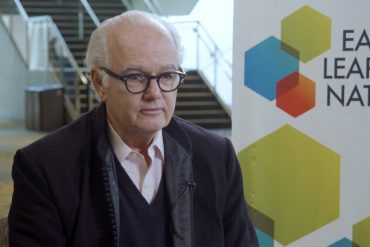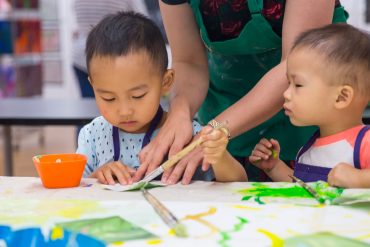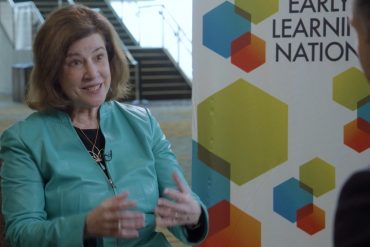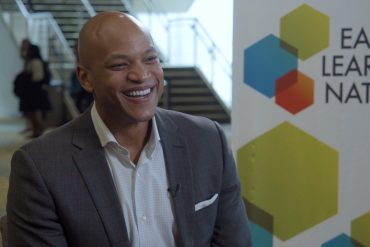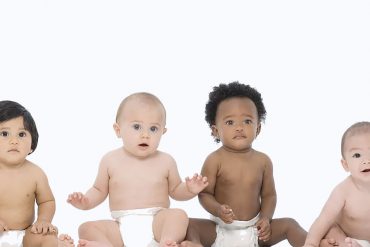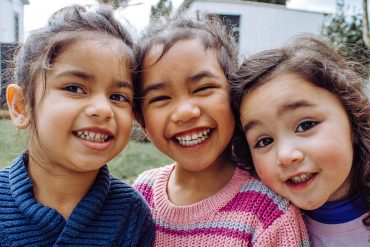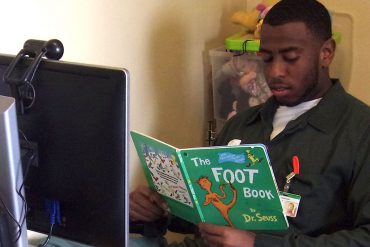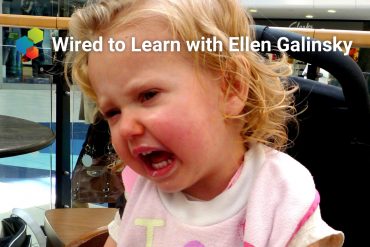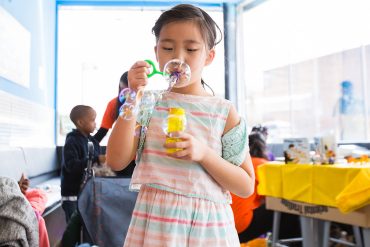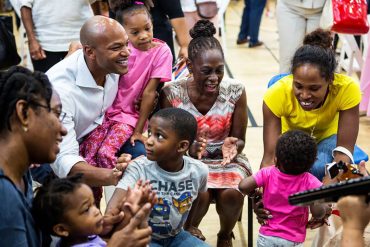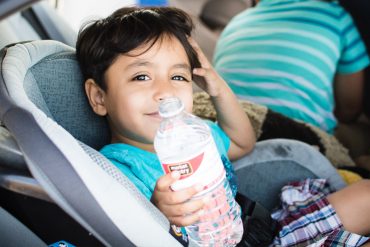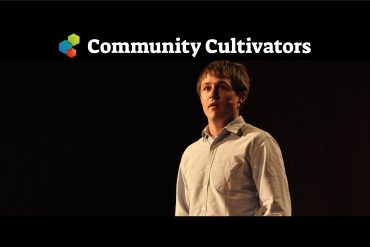According to NYU University Professor Lawrence Aber, poverty and violence are the two most toxic challenges for child development – areas he has researched from the U.S. to Africa and the Middle East. Regardless of location, children can experience poverty and violence in difference ways and levels. Aber explains the research, tools and tactics required to give children the best opportunities for successful development. Filmed for Early Learning Nation’s Mobile Studio at the Society for Research in Child Development’s biennial meeting in Baltimore, MD, on March 22, 2019. #SRCD19
The days of shushing kids in museums are long gone. Now, museums large and small, which once earned reputations for strict enforcement of “no talking,” “no touching” and “no fun” rules for kids, actively court families and kids with free days, family memberships, activities, tours and programs, all designed to celebrate and discover art and the creative spirit.
From “helicoptering” to “snowplowing,” parents are often tempted to simply remove obstacles from children’s way, preventing them from learning how to deal with challenges themselves. Instead, as Ellen Galinsky, Bezos Family Foundation Chief Science Officer and Founder/Executive Director of Mind in the Making, explains, the better approach is to build “Autonomy Support” – helping children gain the independence skills they’ll need to become successful adults. Filmed for Early Learning Nation’s Mobile Studio at the Society for Research in Child Development’s biennial meeting in Baltimore, MD, on March 22, 2019. #SRCD19
Want to fight poverty? Robin Hood CEO Wes Moore – bestselling author, Army combat veteran, social entrepreneur – explains why improving education is an excellent place to start. Filmed for Early Learning Nation’s Mobile Studio at the Society for Research in Child Development’s biennial meeting in Baltimore, MD, on March 22, 2019. #SRCD19
“What this study is asking is whether or not, as a matter of public policy, is it a straightforward way to achieve the important goal of early childhood development.” -- Matt Klein, executive director, New York City Mayor's Office for Economic Opportunity
Some experts say that when it comes specifically to teaching consent, sex education for young children can be done without being explicit, and it can help kids learn about boundaries and empathy when it comes to their own bodies and the bodies of other people.
2.7 million children (1 in 28) currently have an incarcerated parent. How are programs like the Family Connections Center helping them get ready to be with their families again-- while still behind bars?
How often have you looked with pity on parents suffering through a child’s tantrum? Yes, like rubberneckers at a highway crash, it seems like everyone turns around to watch. Don't despair: tantrums are an inevitable part of life with young children. Read more from Ellen Galinsky to explore Executive Function Skills, Autonomy Support and 5 tips for managing tantrums.
Meeting (and Teaching) Families in Unexpected Places Can Transform Cities
Grocery stores, bus stops, laundromats… what’s next?
School is a great place to learn, but it’s not the only place. No matter how excellent our teachers are, no matter how enriching the curricula, school accounts for only about 20 percent of children’s waking hours. That’s why a growing number of education pioneers are building out nontraditional sites for young minds to develop their language skills and to learn about their world.
Robin Hood FUELs the Future for Children
Shares Brain Science, Strategically Partners to Create an Early Learning Metropolis
The greatest city in the world. More than 100,000 children 0-3 growing up in poverty. Two facts that are painful to reconcile.
This is a job for Robin Hood. Unafraid to challenge the seemingly intractable, the grant maker and all-around poverty fighter combines rigorous data and strategic partnerships with powerhouse fundraising.
Here’s the story behind the $50 million, five-year Fund for Early Learning (FUEL) .
Summer travel is a whole other thing when you’re a parent of young children. The rest and relaxation you’ve been...
Shared Values, Different Stories
Logan Smalley’s Vision for Building Community
Like a lot of kids, Logan Smalley liked to take his toys apart and then try (the operative word is...


